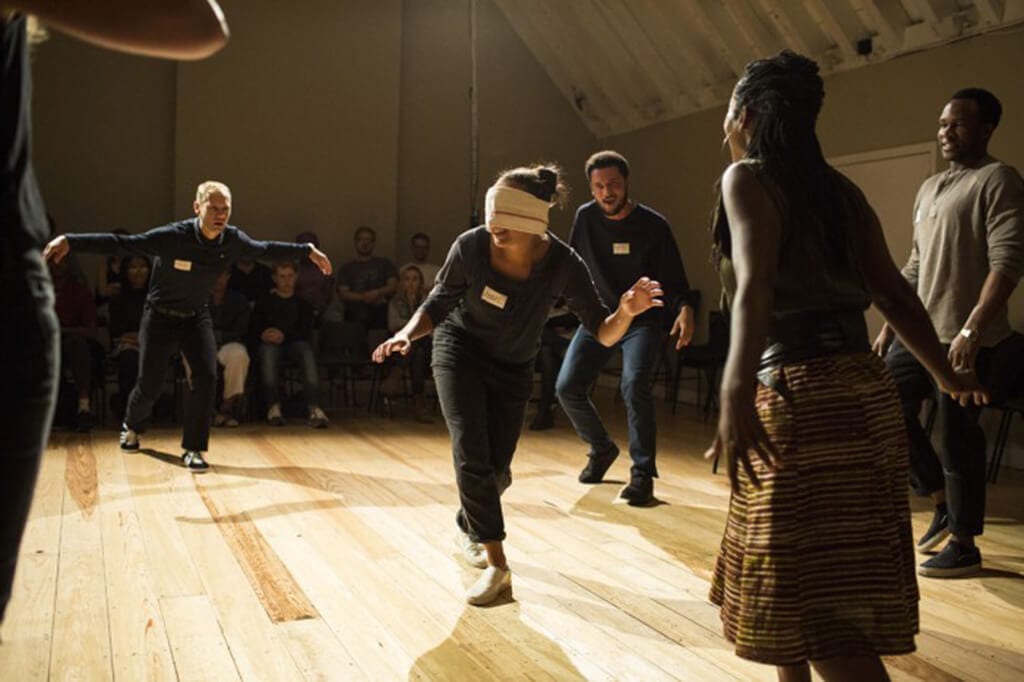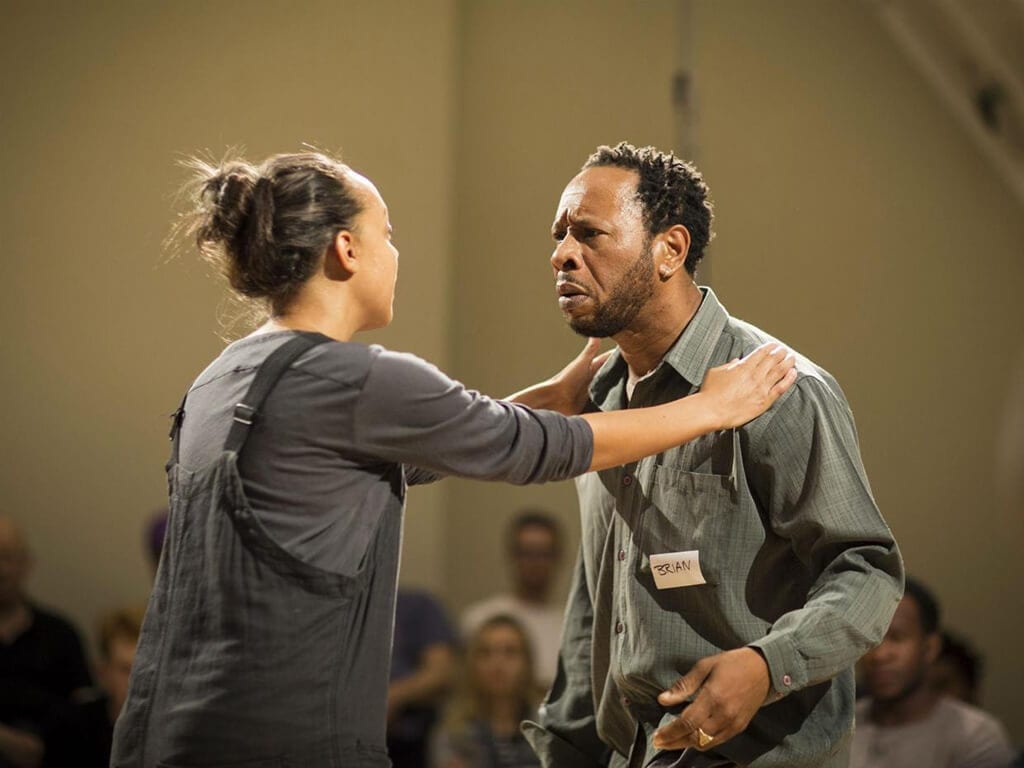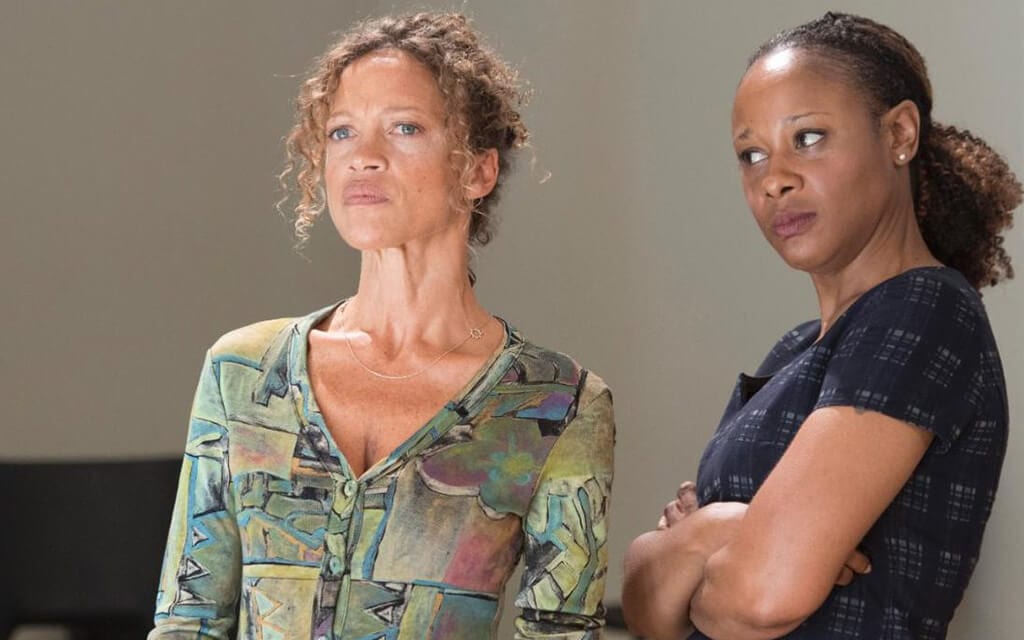Torn tells the story of Angel: a young woman from south London who was abused as a child by her stepfather. It takes the form of an intervention, as Angel confronts her family years later – asking why none of them had the strength to step in and do something.
Nathaniel Martello-White’s text interweaves past and present, offering us snippets of family history seemingly filtered through the perspectives of different characters’ recollections. Over the course of 90 minutes the truth gradually unfolds – but not before the suspension of information and misleading accounts implicate us as an audience, leaving us feeling as uncertain and distrustful at times as members of Angel’s family.
Like Ibsen’s Ghosts, the play is a meditation on how events from the past can come back to haunt us. It looks back to the interracial marriage between Angel’s parents and the tensions that grew out of it – finding in this the genesis of the neglect and heartless self-interest that Angel becomes a victim of.
Beyond this, it is also a play that contextualises its characters’ hardships in light of the legacy of slavery, and in particular ongoing racism and power play exemplified in a deeply disturbing monologue about black exploitation delivered by Angel’s stepfather Steve.
Richard Twyman’s production is stripped back in the extreme: performed in a rehearsal space behind the Jerwood, and with windows looking out onto the street below, it feels almost unstaged – a decision that works well with the piece, giving it an honest and intimate feel.
I struggled a little bit for the first twenty minutes: there was something a bit declamatory and slightly artificial in the delivery (with the exceptions of Jamael Westman and Osy Ikhile who seemed refreshingly at ease). Could be a number of things: it was a matinee, so maybe just a bit slow to kick into gear; but also, the first half of the play is perhaps more fractured and has fewer substantial scenes than the second half; and there’s an emotional intensity at the start that until we have a fuller understanding of its causes is perhaps bound to feel a little unnatural and unwarranted.
Whatever the cause, the stiltedness faded as soon as the play got going – and some of the performances that grow out of it carry some serious emotional weight, in particular Adelle Leonce as Angel, Indra Ove as 1st Twin and Franc Ashman as 2nd Twin. Singling people out feels unfair, however – as it really is a show sustained by the ensemble, and with no weak links.



